INDECLINE: Hard-Hitting Protest Art for Racial Justice
- Alessandro Berni

- Jul 31, 2020
- 3 min read
In 2017, a tree in Richmond Virginia’s historic Joseph Bryan Park bore especially strange fruit: a street art resistance installation that stunned locals and sent a powerful message. INDECLINE, an anonymous activist art collective, hung eight clown dummies dressed in KKK robes from nooses around their necks, in a provocative lynching. One of the hanging mannequins had a wooden placard around its neck reading: “If Attacked By A Mob of Clowns, Go For The Juggler.” The installation, titled Ku Klux Klowns, was conceptualized and executed in response to the death of Heather Heyer in Charlottesville, VA, at the Unite the Right rally in 2017. After she was killed in an attack on the counter-protesters of the racist rally, INDECLINE took to social media, promising to create an installation directly addressing the increased visibility and hostility of White Nationalists, Neo-Nazis, and racist hate groups in America.
In their video of the installation, INDECLINE activists are seen installing Ku Klux Klowns in the quiet of dawn, significantly set in Richmond, the historic capital of the Confederate South. Byran Park was also the site of a massive slave uprising in the summer of 1800, led by enslaved blacksmith Gabriel Prosser. The video is set to dialogue from a decades-old episode of the “Superman” radio show that ridiculed the KKK, cut with interspersed lines from the Klan anthem: “Stand up and be counted/show that world that you’re a man… join the Ku Klux Klan.”

A wooden placard around one Klansman’s neck reads: “If attacked by a mob of clowns, go for the juggler.” Image credit: INDECLINE

Ku Klux Klowns (2017) by INDECLINE.
Image credit: INDECLINE
But Ku Klux Klowns certainly wasn’t INDECLINE’s first time making headlines. Since its founding in 2001, the activist group of graffiti artists, writers, filmmakers, and photographers have spawned creative and radical installations drawing attention to various social, ecological, and economic injustices perpetrated by both American and international government forces. In 2016, INDECLINE made news for covering the Hollywood Walk of Fame stars with the names of several Black unarmed victims of police killings in recent years, including Tamir Rice, Michael Brown, Eric Garner, and more.
Later that year, the collective erected several life-sized statues of a nude (and incredibly unflattering) Donald Trump across Cleveland, New York City, San Francisco, Los Angeles, and Seattle. Aptly titled The Emperor Has No B—s, the clay and silicon sculptures were installed at exactly the same time in each city, executed by two people dressed as construction workers who swiftly and efficiently epoxy’d the sculptures to the ground before disappearing into the gathering crowds, according to Rolling Stone.
“Like any good fight in the name of justice, the objective of INDECLINE’s work is to identify, target, and kill the precedent in the most thought provoking and inspirational manner possible,” INDECLINE told NY-ArtNews. Shock value and surprise are central to INDECLINE’s provocative and memorable protest art. Law enforcement agencies have been quick to denounce the installations as “vandalism,” or condemn their acts as “distasteful” and “hurtful.” But both the execution of Ku Klux Klowns and the subsequent backlash begs the obvious and intended question: What differentiates the acts of hate and violent imagery that we condemn from those that we choose to overlook?
Today, the resistance group carries on the righteous for justice on the tails of the largest civil rights revolution in modern world history, as America continues to grapple with racially motivated hate crimes, police brutality, and a resurgence in white supremacy unchallenged by the Trump Administration’s refusal to condemn and disavow white nationalist groups. Only halfway through the year 2020, the country has already witnessed unprecedented upheaval and uprising: ignited by the murders of George Floyd, Breonna Taylor, and countless other victims, American citizens are calling for widespread police reform, reconsideration of the efficacy of the prison industrial complex; revived discussions of reparations, redlining, and gerrymandering; and acknowledgement of how the country continues to systematically fail BIPOC citizens. Human Rights Councils and top UN human rights experts have urged international action on American racial violence.
Credit and permission by INDECLINE
“INDECLINE has remained committed to fighting this scourge with a combination of resistance art and illegal guerilla tactics,” the collective told NY-ArtNews. “The collective is resolute in providing its own set of checks and balances in the absence of the ones that are overlooked by our racist government leaders.” Globally, street artists and activists operate hand-in-hand, using controversial political art to shine a spotlight on structural issues facing their communities, asking tough questions and proposing answers. In this momentous time in American history, we revisit INDECLINE’s hard-hitting oeuvre for its renewed significance, and eagerly await their next performance.



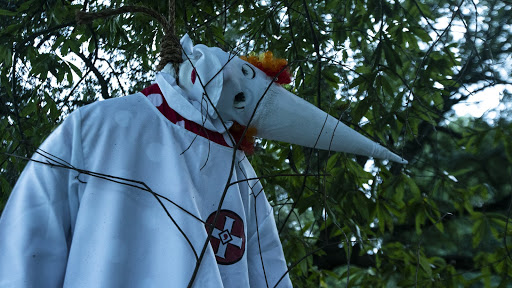

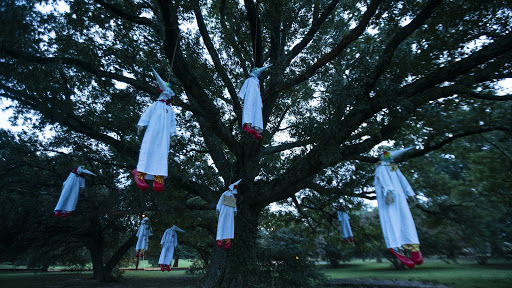

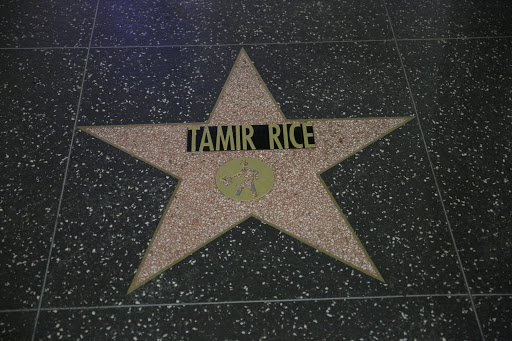

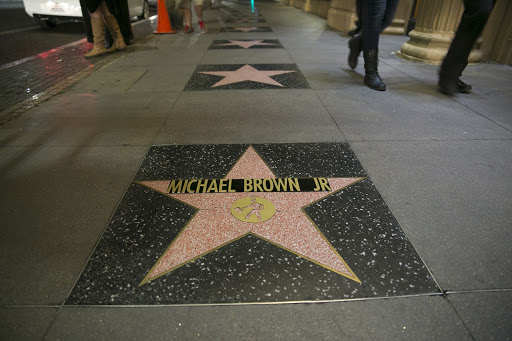

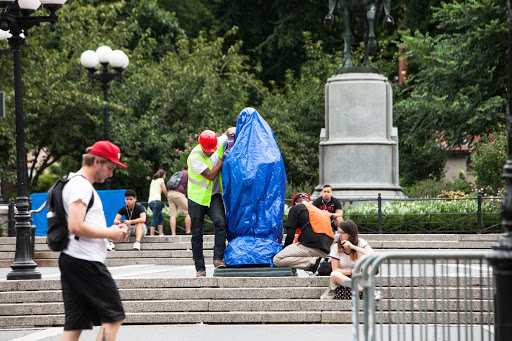




Comments